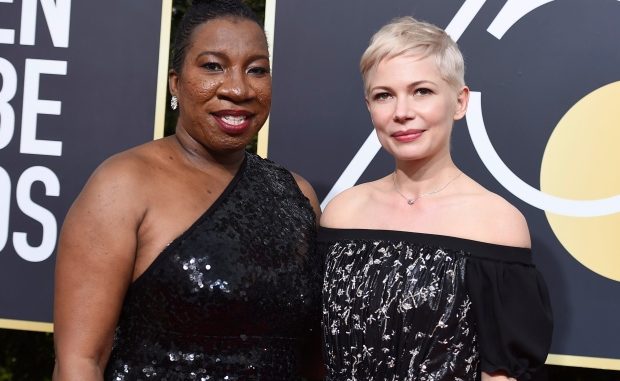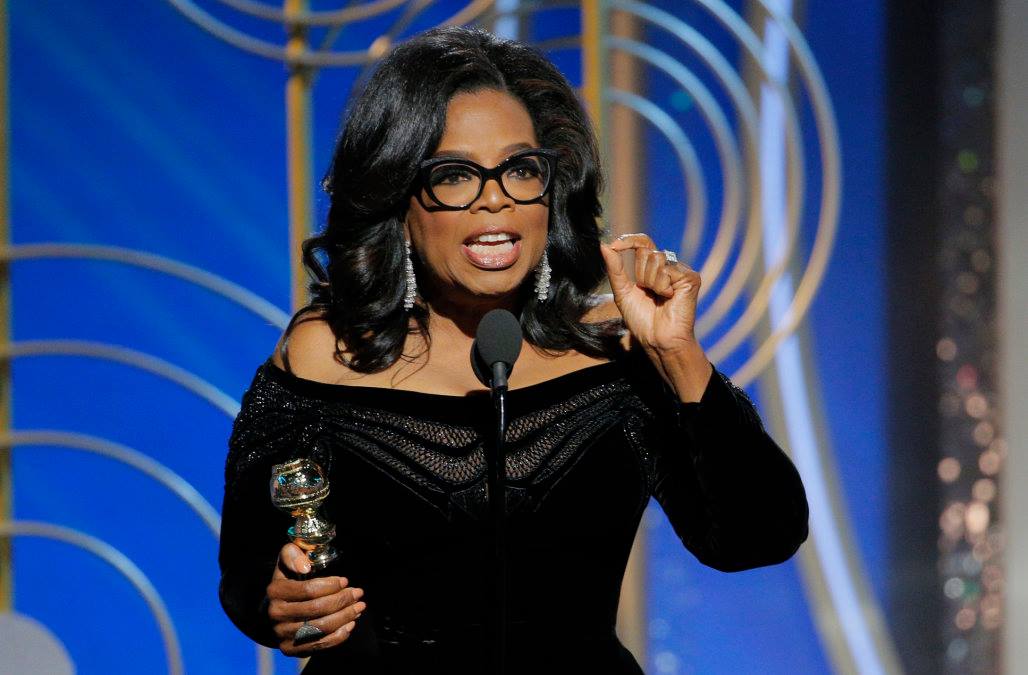The Golden Globes, airing last night, stood as the first major awards ceremony to follow 2017’s #MeToo movement and the wave of sexual assault and harassment allegations against some of Hollywood’s elite.
Consistently, The Globes had served as the playground for the now disgraced Harvey Weinstein, well-known for his manipulation of the Hollywood Foreign Press Association and now well-known for his history of sexual assault and harassment.
The elephant in everyone’s living room was how this movement and these actions would be addressed. From the show’s opening, host Seth Meyers made it clear that they would not be swept under the event’s red carpet, with his monologue tackling it head on. Meyers opened with a, less than traditional, “Good evening, ladies and remaining gentlemen” followed by stating, “It’s 2018; marijuana is finally allowed and sexual harassment finally isn’t — it’s gonna be a good year.”
Jabbing directly at Weinstein’s absence, Meyers also mentioned that “Harvey Weinstein will be back in 20 years when he becomes the first person to be booed during the In Memoriam.”
But the attention drawn to these recent events began even before Meyer’s monologue.
Leading up to the 75th annual Golden Globe awards was the 2018 red carpet. Intended to display the various fashion trends of the season, the red carpet welcomes stars and precedes the ceremony.
This year’s attire proved to be entirely unique, serving to be more than just a fashion statement. Men and women invited to attend the red carpet were encouraged to wear black. Referred to as “Time’s Up,” this movement inspired professionals in the industry to stand in solidarity in response to sexual harassment in and out of Hollywood.
The “Time’s Up” initiative was set in motion to combat sexual harassment and inequality around the globe.

Reese Witherspoon was among the many women that showed support for the cause. “We’re finally hearing each other, and seeing each other, and now locking arms in solidarity with each other, and in solidarity for every woman who doesn’t feel seen, to be finally heard,” she said, according to the Times.
The message of women empowerment and tolerance was shared through both the fashion seen on the red carpet and matching “Time’s Up” pins set the theme and tone for the entire night.
The award presentations were quick to continue highlighting the importance of women and their accomplishments in Hollywood. Within the first half hour of the show, three women received awards, including Rachel Brosnahan, Elizabeth Moss and Nicole Kidman who won the first award of the night.
Several of these awards were for their prominent roles in progressive series. Kidman received the “Best Actress” award for her acclaimed performance as a domestic abuse survivor in Big Little Lies.
Moss, recognized for her performance in Margaret Atwood’s feminist-themed Handmaid’s Tale, touched on the expanding role of women in the industry during her acceptance speech. “We no longer live in the blank white spaces at the edge of print… We are the story in print – and we are writing the story ourselves.”
While Moss discussed how women are beginning to become better recognized, Brosnahan highlighted an important point – there are still improvements to be made. As stated in her speech, “There are so many women stories that are still out there and still deserve to be told.”
Other acceptance speeches throughout the night shared this progressive tone, with both men and women calling out the mistakes of the past and creating a definitive stance for the future: Women should be encouraged and accepted for roles in Hollywood, and any sort of abuse will not be tolerated.
The powerful messaging geared towards the empowerment of women and survivors was not just contained to the actual show, however, as multiple commercials also sought to raise awareness for contemporary social issues. Notably, The New York Times released a commercial “The Truth Has a Voice” which, with its minimalist and simplistic style, spoke to the importance of one’s own story and the bravery in telling it.
While some have criticized this ad as merely trying to redirect the spotlight place on The Post, both the award-nominated film and its parent newspaper, the ad serves to share an important message, regardless.
During the ceremony, the night’s highlights and history-setting were not only contained to the achievements of its phenomenal women. Particularly, Sterling Brown of NBC’s This is Us became the first black man to take home the Globe for Best Lead in a TV Drama. Moved by the win, Brown’s speech highlighted his surprise at the award – and being the first black man to win such – while also sharing his hopes for the future.
“I look forward to seeing somebody else stand up here holding this trophy, not 75 years from now.”
The most notable speech and award of the night, however, inarguably went to Oprah WInfrey, receiving The Cecil B. DeMille Award, an honorary Golden Globe for “outstanding contributions to the world of entertainment.” Following a moving introduction from Reese Witherspoon and a reel of Winfrey’s career highlights, she delivered a powerhouse speech focused on representation, equality, justice and truth.
“For too long women have not been heard or believed if they dared to speak their truth to the power of those men,” Winfrey said. Following in the mantra of the evening and to a standing ovation mid-speech, she continued, “Their time is up.”
Overall, the evening demonstrated the power held, not only by individuals, but by the content they create and by the industry itself. With wins centered around The Handmaid’s Tale, Three Billboards Outside Ebbing, Missouri and Big Little Lies, the importance of storytelling (and telling stories that matter) cannot be denied.
“What I know for sure is that speaking your truth is the most powerful tool we all have, and I’m especially proud and inspired by all the women who have felt strong enough and empowered enough to speak up and share their personal stories.” –Oprah Winfrey




